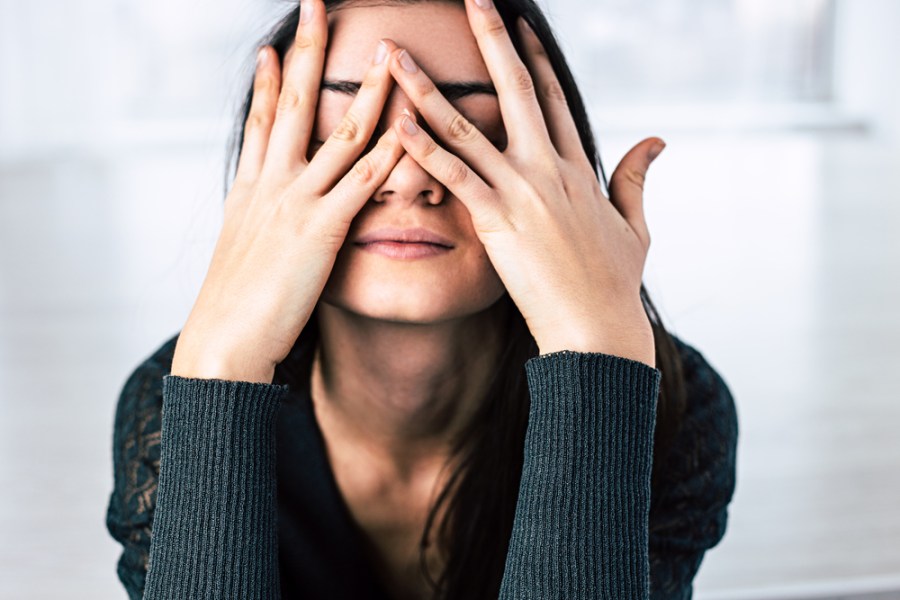The expression ‘stress ages you’ is spot on. Lack of sleep and increased stress can lead to weight gain and an older appearance. Here’s how to take control of your health.
If you want to look and feel younger, reducing your stress levels and getting a good night’s sleep are crucial.
It is recommended that we get between six to eight hours of sleep each night, and most people get around seven. However, some people naturally need more sleep than others and if you find you’re at the upper end of the recommended range, then try to get the sleep that you need to feel good and function well.
While there are plenty of products that claim to conceal eye bags and signs of sleep deprivation, poor sleep or lack of it literally ages your body and makes you more prone to illness and infections. Not sleeping enough or not getting good quality sleep will cause your body to produce extra adrenaline to help you keep going. This dependence on stress hormones places great demands on the system.
When you’re asleep, your body not only repairs but your immune system produces antibodies that help to fight infections. The immune system is better placed to fight off illness and it may take you longer to recover if you do fall ill. Long-term sleep deprivation increases your risk of diabetes and cardiovascular disease. It can also increase weight gain. According to the Harvard Medical School, studies have shown that a lack of sleep can cause weight gain. Lack of sleep lowers the production of a hormone called leptin, the role of which is to tell your brain when you’ve had enough to eat. It also raises levels of a biochemical called ghrelin, which is an appetite stimulant, so it’s easy to overeat and not feel full. If you struggle to get to sleep, turn to page 94 for some useful tips on how to fall asleep and improve sleep quality.
How stress ages you
Stress is a natural physical and mental reaction to good and bad experiences. When needed, it can be a good thing. Your body will respond to stressful situations by releasing stress hormones and increasing your heart rate and breathing in order to cope with the situation at hand. However, long-term stress levels can jeopardise your health and age you. When stress is prolonged, it results in a continuous release of stress hormones. This causes your body to remain alert and fired up to anticipating dangers that may not be there. However, stress also suppresses the immune system and can make your body more susceptible to illness and infections.
When we age, telomeres, which are protective caps at the end of our cell chromosomes, become shortened. Telomeres have been described by experts as the ‘plastic tips on shoelaces’ that keep the ends of chromosomes from fraying and sticking to each other. This would destroy an organism’s genetic information. Each time a cell divides, the the telomeres get shorter. This shortening process is linked with cancer, ageing and a higher risk of death.
A study conducted at Brigham Women’s Hospital in Boston revealed a link between long-term severe stress and ageing. Women aged 42 to 69 were questioned about phobias and anxiety. Women who had phobias had shorter telomeres than those who didn’t. So worrying about things excessively and having high stress levels can literally age you from the inside.
It’s also widely accepted that those under high stress levels are less likely to look after themselves. Stressed people tend to eat poorly and drink more alcohol, or smoke, often neglecting exercise. This of course only makes the problem worse.
How to control stress
To bring stress under control, avoid dieting. Strict diets can shorten telomeres that protect our DNA. Take up yoga. This will help you control your thoughts and be better placed to cope with stressful situations.
Exercise regularly. This will release serotonin, a chemical which is released during exercise that is thought to improve mood and lead to reduced feelings of depression and a more positive mental state.
The negative effects of sugar
Sugar or caffeine will stimulate your system and stop you from getting to sleep. Avoid caffeine and sugary foods in the evenings and cut back on alcohol, which also disrupts sleep quality.
The benefits of napping
Napping can make a real difference to energy levels and performance – even a short nap of 25 minutes can increase alertness both immediately afterwards and later in the day.








